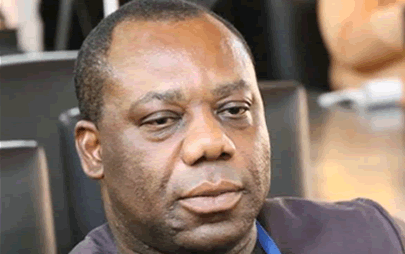GNECC calls for effective implementation of inclusive education policy

The Ghana National Education Campaign Coalition (GNECC) has called on government to increase funding for Inclusive Education to at least two per cent of the education budget to ensure its effective implementation.
Inclusive Education is an approach or a process which occurs when children with and without disabilities, and of diverse backgrounds and abilities learn together in the same classroom, interact socially with each other within the regular school setting for the whole day.
Mr Bright Appiah, Executive Council Chair, GNECC, said in pursuing the Sustainable Development Goal four, which seeks to ensure inclusive and equitable quality education for all, there was the need to advocate for the effective implementation of the Inclusive Education policy to provide education for all children, including those with disabilities.
He said with regards to the implementation of the education policy, it was sad to note that very little was happening, considering what is required to fully implement Inclusive Education in Ghana.
Mr Appiah made this known in a speech read on his behalf at the Second National Stakeholders forum on inclusive education, organised by the GNECC, with support from STAR-Ghana, under the Gender and Social Inclusion (GESI) Strategic Partnership Grant.
The forum was held under the theme: “The Implementation of Ghana’s Inclusive Education Policy: What is the progress so far”.
As part of efforts to address challenges facing children with disabilities, the SPED of GES initiated the development of the Inclusive Education Policy and Minimum Standards and Guidelines.
The policy, Minimum Standards and Guidelines and the implementation plan were completed, duly launched and adopted by the Ministry of Education in May 2016, however the scope of implementation is still low and limited to few districts.
It is on this basis that GNECC is implementing the project dubbed: “Advancing the Right to Education for Children with Disability in Ghana’ with funding support from STAR-Ghana, under the Gender and Social Inclusion (GESI) Strategic Partnership Grant.
Mr Appiah also underscored the need for duty bearers at national, regional, district and school levels to comply fully with the Inclusive Education policy, minimum standards and guidelines.
He said working at changing attitudes and behaviours, which reinforce stigma towards vulnerable children, especially children with disabilities; and strengthening of the capacity of citizens to hold duty bearers accountable for the effective implementation of the IE policy, were key factors.
Professor Samuel Hayford, Dean of Education, University of Education, Winneba, said research had shown that special-needs students educated in regular classes do better academically and socially than comparable students in non-inclusive setting.
He noted that as a country, if we were able to implement the inclusive education policy very well; Ghana would be crowned the first country on the globe to be a law-abiding nation because we do not trample on the rights of anybody.
“If inclusive education is about human rights and we are saying it is not about those with disabilities but is it about anyone who has the tendency of either being a drop-out or not having access to school; and if we are able to remove all these impediments then it means we are satisfying the rights of many individuals,” he added.
Madam Amina Achiaa, Director, Special Education Division (SPED) of the Ghana Education Service (GES), noted that, with regards to the Inclusive Education policy, 18,310 children with disabilities had been enrolled in the regular schools.
She said the establishment of the Regional Assessment Centres focused on an objective where, every child irrespective of their condition needed to be screened and accessed to know their health status first before they were given placement.
Madam Achiaa said among the challenges were inadequate infrastructure to conveniently accommodate all children, inaccessible school facilities, negative attitude of society towards children with special educational needs including those with disabilities; and funding.
She called for continuous sensitisation of stakeholders and communities on the need to change their attitude towards issues of children with special educational needs; and as well review all instructional materials and assistive devices for teaching and implementation of Inclusive Education in schools to promote sustainability.
Source: GNA
